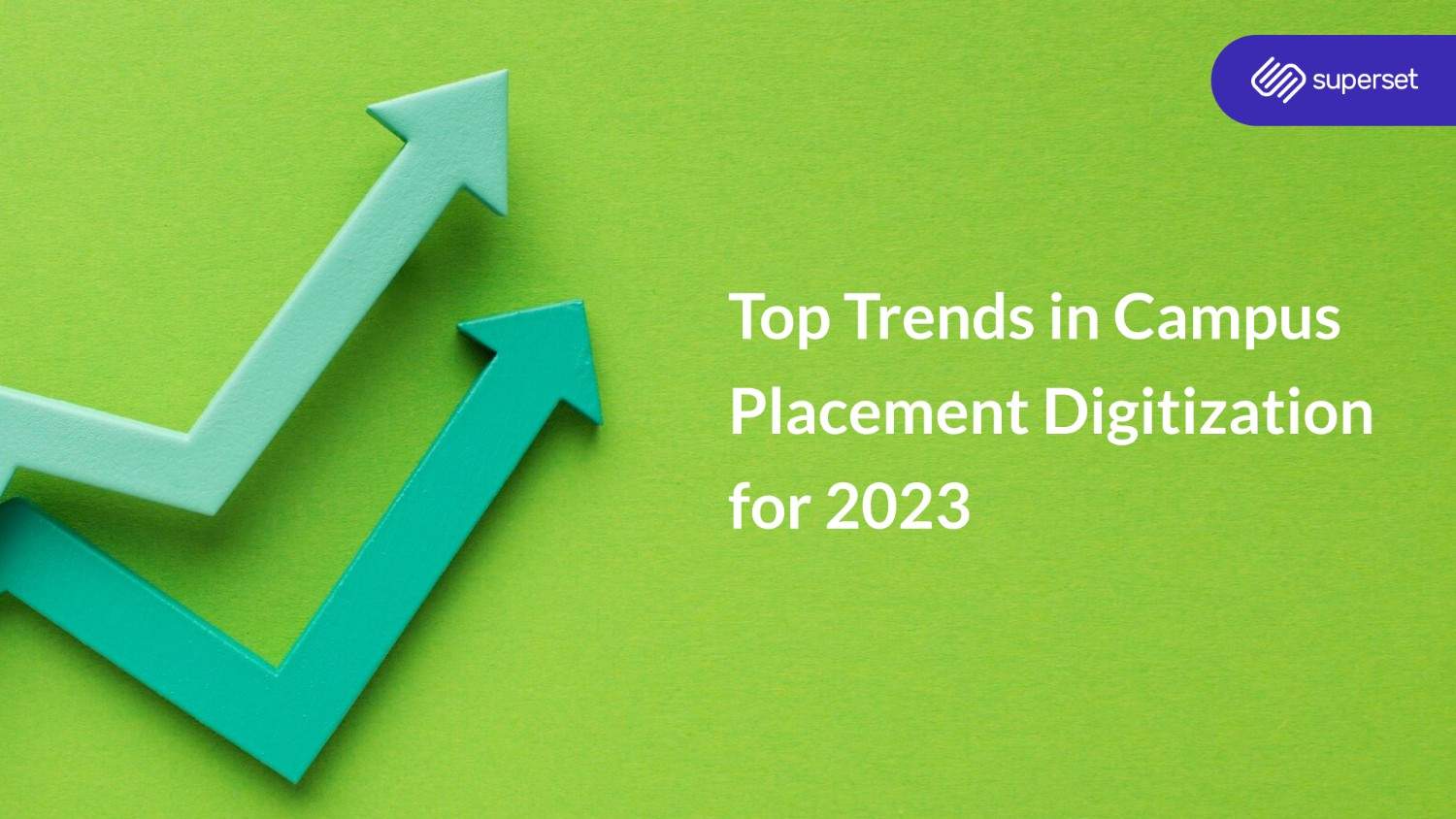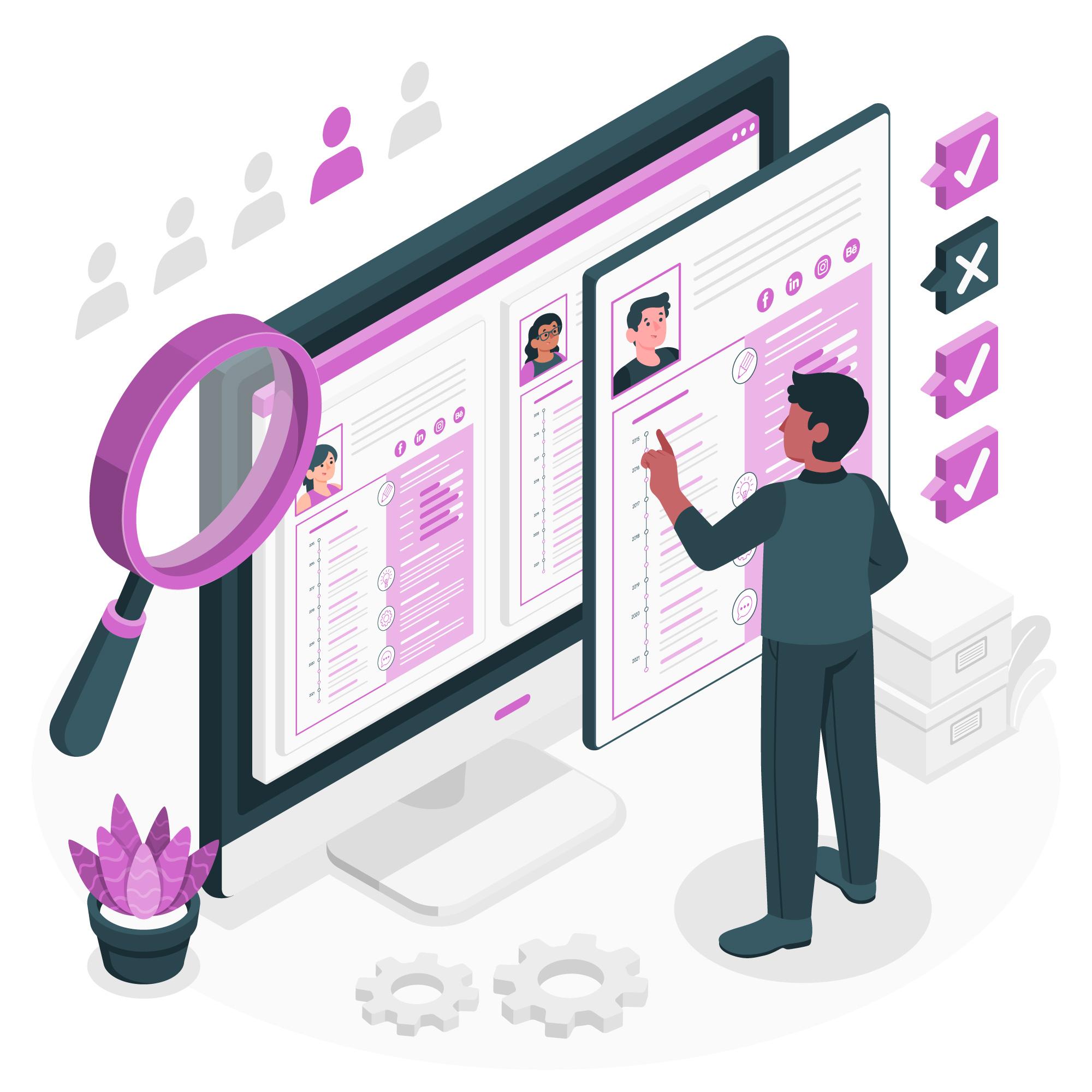In campus placement, the winds of change are blowing, and the compass points towards a future where recruitment meets innovation.
Picture this: The global market for online recruitment technology is anticipated to experience substantial growth, with a projected increase from $11.48 billion in 2023 to $30.87 billion by 2030. It represents a compound annual growth rate (CAGR) of 15.2% over the forecast period. That’s not just a statistic; it’s a testament to the transformative potential of campus placement digitization.
And here’s the million-dollar question – are you ready to redefine how you discover and nurture the next generation of talent?
In our fast-paced world, staying ahead in the competition to secure top-tier talent is no easy feat. That’s why we’re here to guide you through the cutting-edge trends reshaping the future of campus recruitment in 2023. Your journey to finding the perfect match for your team should be as seamless and technologically advanced as your company’s next groundbreaking innovation.
Let’s explore how.
Virtual Recruiting

Approximately 70% of companies acknowledge that over half of their recruiting and onboarding processes are conducted virtually, and 1 in 10 companies report an entirely virtual approach.
The trend of online recruiting is expected to expand, introducing challenges in providing candidates with an authentic understanding of company culture and limiting sustained in-person interactions for mutual fit assessment. High-quality virtual recruiting experiences prioritize communicating company culture right from the initial discovery of an open role, emphasizing the importance of creating meaningful connections in the digital realm.
Data-Driven Decision Making

In the dynamic landscape of automated campus placement, data-driven decision-making has become a cornerstone for companies and educational institutions. The utilization of data analytics in the recruitment process has seen a significant uptick, with organizations leveraging data to discern trends, evaluate the effectiveness of their recruitment strategies, and make well-informed decisions. This strategic integration of data analytics allows for a more nuanced understanding of candidate dynamics, optimizing the overall online placements.
Artificial Intelligence in Screening
Artificial Intelligence (AI) has become an integral player in reshaping recruitment practices, mainly through its application in screening procedures. AI-powered tools for resume screening and candidate evaluation are seamlessly integrated into recruitment processes, offering a swift and efficient means of shortlisting candidates based on predefined criteria. This expedites the selection process and streamlines efforts for recruiters and candidates alike, showcasing the transformative impact of AI in campus placements.
Online Assessment Platforms
The ascent of online assessment platforms signifies a paradigm shift in how evaluations are conducted. The increased adoption of these platforms allows for the remote assessment of candidates, offering flexibility and efficiency in evaluating skills and knowledge. This adaptation to virtualized assessment methods aligns with the changing nature of work and underscores the industry’s commitment to innovation in recruitment practices.
Also read, Online assessment: What is it & How you use it for a better hire
Use of automated recruitment software
Automated recruitment software streamlines and expedites various stages of the hiring journey, from initial candidate sourcing to the final selection. These tools leverage advanced algorithms and machine learning to analyze resumes, assess candidate qualifications, and conduct preliminary interviews. The result is a more efficient and data-driven approach to talent acquisition, enabling recruiters to sift through a large pool of candidates in a fraction of the time it would traditionally take.
Enhanced Candidate Experience
Companies increasingly focus on enhancing the candidate experience throughout online placements. This involves a holistic approach, encompassing transparent communication, efficient scheduling, and user-friendly interfaces for online assessments. Organizations prioritize the candidate experience, leveraging campus placement portals to attract top talent and bolster their employer brand in a competitive job market.
Personalization in Recruitment Marketing
In response to the individuality of prospective candidates, there is a noticeable trend towards personalization in recruitment marketing. Companies are tailoring communication and branding strategies to resonate with specific student demographics or cater to distinct career interests. This personalized approach aims to create a more meaningful connection with potential candidates, distinguishing companies in a crowded recruitment landscape.
Remote Work Considerations
With the widespread acceptance of remote work, recruitment strategies are transforming to align with the evolving preferences of candidates. Companies are actively adapting by showcasing remote work policies during campus placements, recognizing the significance of offering flexible arrangements to attract candidates comfortable with or desiring remote work setups. They are now three times more inclined to hire employees who can work remotely from anywhere.
Soft Skills Assessment
Acknowledging the multifaceted nature of an ideal candidate, there is an increasing emphasis on assessing soft skills during the recruitment process. Some companies are pioneering innovative methods to evaluate candidates’ interpersonal and communication skills, recognizing that strong, soft skills complement technical competence for overall effectiveness in the workplace.
Diversity, Equity, and Inclusion (DEI) Initiatives
A notable shift towards Diversity, Equity, and Inclusion (DEI) initiatives is evident in online campus placements. Companies are proactively working to create more inclusive recruitment processes, fostering diverse talent pools. This emphasis on diversity aligns with ethical considerations and contributes to a more innovative and vibrant work environment.
For example, Starbucks has aligned its diversity, equity, and inclusion (DEI) recruiting objectives with overarching business goals. Specifically, the company has established targets for inclusion and diversity, aiming to achieve a minimum representation of 30% for Black, Indigenous, and People of Color (BIPOC) individuals at all corporate levels and a minimum of 40% in roles related to manufacturing and retail by the year 2025. Notably, Starbucks is reinforcing its commitment to DEI by linking these metrics to executive compensation, a practice set to commence in the fiscal year 2021.
Collaboration with Educational Institutions
The collaboration between companies and educational institutions has deepened, focusing on aligning curricula with industry needs. This collaborative approach ensures that students are equipped with relevant skills for the job market, fostering a symbiotic relationship between academia and industry. Initiatives such as industry-specific workshops, internships, and mentorship programs exemplify this collaborative spirit, contributing to developing a well-prepared workforce for the professional world’s challenges.
To conclude, as we delve into the dynamic landscape of campus placement digitization for the upcoming year, one cannot help but reflect on the transformative power these trends hold for students and recruiters.
In the realm of opportunities, the statistics speak volumes – the job market is evolving, and so must our approach to securing those coveted positions. Remember the anxious anticipation that often accompanies the job search process? Now, envision a future where automated recruitment software becomes a beacon of hope, streamlining the journey from application to employment. It’s not just about trends; it’s about the collective experience of students seeking their foothold in the professional realm and recruiters searching for the perfect match.








